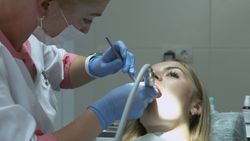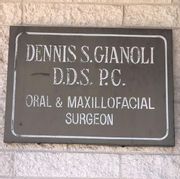
Hidden behind the gums, your jaws are essential to your oral health. Specifically, they provide a place for teeth to anchor securely, as well as support normal chewing and speaking abilities. However, when teeth go missing or gum disease occurs, the jaw bone can deteriorate, leading to a wide range of potential dental health problems. Fortunately, skilled oral surgeons can replace this lost material through a treatment known as bone grafting.
How Are Bone Graft Procedures Performed?
Bone grafting is the process of taking organic material and strategically affixing it to the affected area through a surgical procedure. To deliver superior results, many procedures involve autogenous grafts—or bone taken from elsewhere in the patient’s body, such as the chin or hip. As the patient’s own live tissue, there is a lower risk of the graft being rejected by the body. It also can help stimulate new bone growth in the treatment area.
If autogenous grafting isn’t an option, the material may come from a human or animal donor. In other cases, the material may be a composite material containing proteins, collagen, and growth factors to support bone development and healing.
 Placing the material is a fairly simple procedure that involves making a small incision in the gum tissue to access the jaw. The material is then carefully applied to the deteriorated area and the gums are sutured. Over the next several weeks, the bone will heal to produce a stronger and more adequate jaw.
Placing the material is a fairly simple procedure that involves making a small incision in the gum tissue to access the jaw. The material is then carefully applied to the deteriorated area and the gums are sutured. Over the next several weeks, the bone will heal to produce a stronger and more adequate jaw.
How Can Bone Grafting Restore Oral Health?
Dentists often recommend bone grafting to support dental implants—prosthetic devices that can permanently replace a missing tooth. For implants to work successfully, the root portion of the device must be inserted into the jaw through the gums. However, if an individual does not have adequate bone tissue, the jaw may not be able to securely hold the implant. In these cases, grafting is performed to restore the jaw. Once the site has healed, oral surgeons can insert the dental implant for a reliable hold.
In addition to securing dental implants, successful grafts can correct jaw movement that may impair chewing, biting, and speaking. The new material will also help prevent cheeks from sinking inward—a problem that can cause some to develop an aged appearance.
If you want to experience the benefits that dental implants have to offer but suffer from jaw deterioration, Dennis S. Gianoli DDS, PC can help. Serving the Hartford County, CT, region, this experienced oral surgeon is equipped with the skills and technology to perform bone grafting and dental implantation in a safe, comfortable, and effective manner. To learn more about these treatment options, visit his practice online. To schedule a convenient consultation at the Berlin office, call a friendly associate at (860) 828-3559.
About the Business
Have a question? Ask the experts!
Send your question

